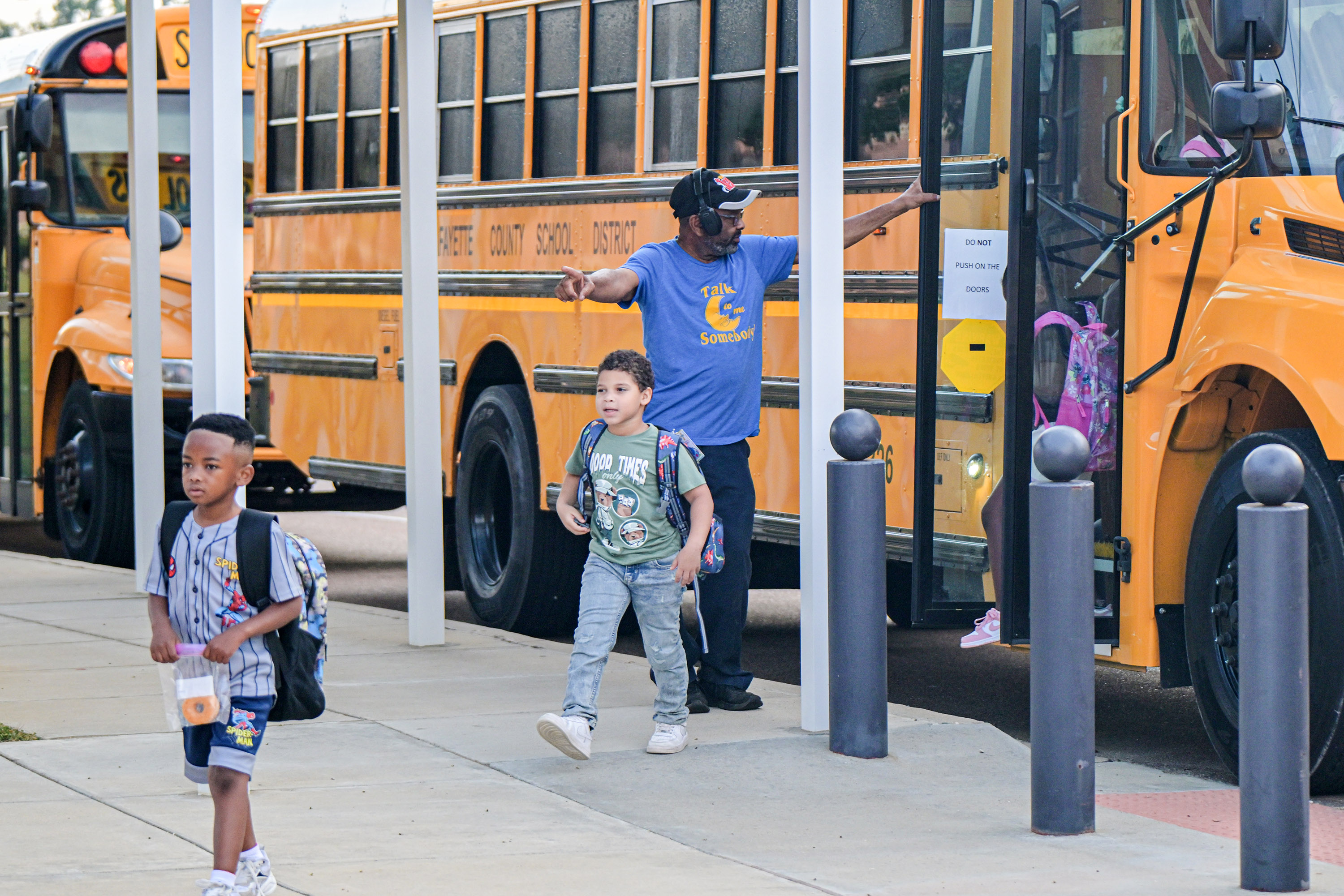Power of choice a life constant
Published 6:00 am Sunday, March 20, 2016
As an attorney, college instructor and life coach, I have found that choice is what separates us from others. It defines our moods, behaviors and outcomes. This is apparent amongst all individuals, including children, college students and adults. Each person finds himself or herself in situations based off of choice — what separates us from a different outcome is a simple decision.
Students end up on academic probation because their grades are bad. Marriage thrives, or doesn’t, because of the choices of both parties. Juvenile defendants end up arrested, because they break the law. Each has ultimately made a choice that has affected their lives, and they are left cleaning up the mess. Often, we are quick to point fingers and act as if the rest of us are somewhat superior in our decision-making skills, justifying our judgments with a smirk and an explanation on why we turned out better.
But the reality is, we each have made bad decisions-we each have looked choice in the eyes and gone in a direction, once upon a time, that was ill-advised. And more often than not, all that really matters is whether we are in the wrong (or right) place at the wrong (or right) time. People, as a whole, really don’t know what they want. In fact, people make bad decisions every day. The power of choice is likely the greatest (and most dangerous) gift we have. And when faced with many options, we either shy away from making a decision (which is a decision itself) or we make the wrong one. We are influenced by emotion more than reason and intellect, and we stick with what’s comfortable to avoid discomfort.
Trending
We wind up in situations that we cannot crawl out of, and when we see others fall in a rabbit hole, we frown and say, “Oh, what pity,” without even realizing that we could be in our own rabbit hole had circumstances caught us at the right moment. People get divorced, and others discuss it as if they have some semblance of understanding of what another is going through. Students fly off to college alone with no support system in place after living under their parents’ sheltered roof for 18 years, and we wonder why they cannot balance school and social life. We buy homes, cars and vacations and find ourselves wondering how we are going to pay it all back. Individuals pursue paths with no idea of what they really want.
Sometimes, they have a fairly clear understanding of what they don’t want, but they are not really sure on what would be a fit for them long term. And more often than not, individuals pursue paths due to fear, uncertainty and a lack of planning. Students apply for graduate programs with little interest in the degree, take jobs just for the money or follow paths encouraged by others because no work was done initially by setting goals, creating plans and pursuing dreams.
With so many options and a belief that we each can do anything we would like, we wind up with a system where people hate their jobs, or worse, their lives and find themselves stuck after years, because they grabbed at straws to do something — a process that occurs due to a lack of self-discovery and understanding. How often I hear individuals say that they would love to do something else with their lives; that they would prefer a different life. And most aren’t able to because of two factors: fear and/or obligations. They find themselves trapped because of their choices, which, of course, were initially chosen because of fear of discomfort and a need for (temporary) certainty. So what is the solution?
We learn to create life early on rather than just going with it. We set goals, make plans and prepare for what we want. If we don’t, we end up with bills and an inability to do something else. Or even worse, we allow fear to consume us to a level that distorts our thinking and gives us a misunderstanding on what we can achieve. We are allowed to think that college is a time to have fun, with no forethought to look at life from a distance. We look at now, rather than 10 years from now. We don’t consider the options. We are young, distracted, and driven by emotion. And we wind up with little time to decide.
Instead, we fall into things because of our lack of planning. And unfortunately, life catches up to us, and we are faced with the reality that where we are is not where we want to be, and where we are going is easy to ignore, because we don’t want to make changes. For each of us, there comes a time when we have to decide on the big issues. This includes school, jobs and relationships. Individuals are faced with the prospect of moving, changing careers, and marriage and/or divorce. And what happens in these moments when we are faced with options is what really defines us. Students go to college yet don’t know how to manage their time appropriately. If they work hard enough, they graduate from college and want to move; yet they are afraid of leaving their safety net and support system. People date and have to decide whether marriage/commitment with the other person is the ultimate goal. Jobs become a source of misery and quitting is on the horizon. And what do we often do in these scenarios? We continue holding on to what we know, because for most of us, comfort outweighs the effort necessary to do something different. At least with comfort we think we know what tomorrow brings. And if we continue down the path “avoiding a decision” (or worse, making the wrong decision) for the mere fact that we hope the emotional toll will go away or the outcome will be different than we know it will be, we only delay, and make more painful, the consequences. And that’s the thing about life: the power of choice remains.
Life is going to happen regardless of whether we actively create it or not. That’s why our choices are so powerful and meaningful. We either create this life, or it creates us. We seek out options, or they find us. What separates any of us from another is a series of choices. None of us are superior. So before you start pointing fingers at the kid who gets arrested, the person who gets a divorce, or the individual in the wrong job, look at yourself and think about your choices.
Trending
Are you really where you want to be?
Betsey Sawyer is an attorney and life coach and also teaches at the University of Mississippi. She can be reached at esawye1@gmail.com





